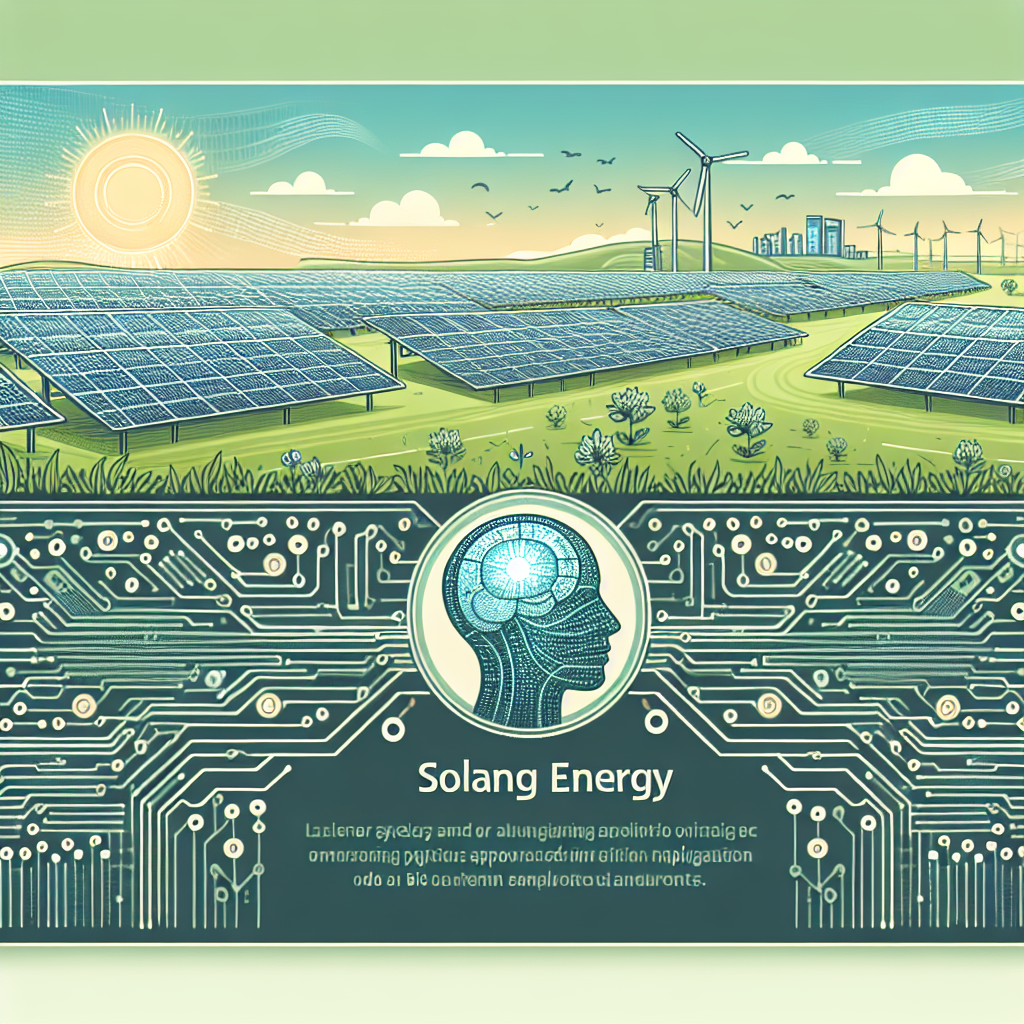Artificial Intelligence (AI) has been revolutionizing various industries, and the solar energy sector is no exception. AI applications have the potential to significantly improve the efficiency, reliability, and performance of solar energy systems. In this article, we will explore some of the key AI applications for solar energy systems and how they are helping to advance the renewable energy sector.
1. Solar Panel Optimization
One of the key applications of AI in solar energy systems is optimizing the performance of solar panels. AI algorithms can analyze data on factors such as weather conditions, sunlight intensity, temperature, and panel orientation to maximize the energy output of solar panels. By continuously monitoring and adjusting the settings of solar panels in real-time, AI can help to increase energy production and improve overall system efficiency.
2. Predictive Maintenance
AI can also be used for predictive maintenance of solar energy systems. By analyzing data on the performance of solar panels, inverters, and other components, AI algorithms can predict when maintenance or repairs are likely to be needed. This proactive approach to maintenance can help to prevent costly downtime and ensure that solar energy systems continue to operate at peak efficiency.
3. Energy Forecasting
AI can be used to forecast energy production from solar energy systems. By analyzing historical data on energy production, weather patterns, and other factors, AI algorithms can predict how much energy a solar energy system is likely to generate in the future. This information can be used to optimize energy storage, plan for grid integration, and make more informed decisions about energy management.
4. Grid Integration
AI can help to improve the integration of solar energy systems with the electrical grid. By analyzing data on grid demand, energy prices, and other factors, AI algorithms can optimize the operation of solar energy systems to maximize energy production and grid stability. AI can also help to manage the flow of energy between solar energy systems and the grid, ensuring that energy is used efficiently and effectively.
5. Fault Detection and Diagnosis
AI can be used to detect and diagnose faults in solar energy systems. By analyzing data on system performance, AI algorithms can identify potential issues such as faulty components, wiring problems, or shading issues that may be affecting energy production. This early detection of faults can help to prevent more serious problems and ensure that solar energy systems continue to operate reliably.
6. Energy Management
AI can help to optimize energy management in solar energy systems. By analyzing data on energy production, consumption, and storage, AI algorithms can determine the most efficient and cost-effective ways to use energy. This can include optimizing the use of energy storage systems, scheduling energy production to meet demand, and adjusting system settings to maximize energy efficiency.
7. Intelligent Solar Tracking Systems
AI can be used to improve the performance of solar tracking systems. Solar tracking systems adjust the position of solar panels to optimize sunlight exposure throughout the day. AI algorithms can analyze data on sunlight intensity, weather conditions, and other factors to adjust the position of solar panels in real-time for maximum energy production. This can help to increase energy output and improve the overall performance of solar energy systems.
FAQs
Q: How does AI improve the efficiency of solar energy systems?
A: AI can improve the efficiency of solar energy systems by optimizing the performance of solar panels, predicting maintenance needs, forecasting energy production, integrating with the grid, detecting faults, managing energy, and optimizing solar tracking systems.
Q: What are the benefits of using AI in solar energy systems?
A: The benefits of using AI in solar energy systems include increased energy production, improved system efficiency, reduced maintenance costs, better grid integration, early fault detection, optimized energy management, and improved solar tracking performance.
Q: Are there any potential drawbacks to using AI in solar energy systems?
A: Some potential drawbacks of using AI in solar energy systems include the cost of implementing AI technology, the need for specialized expertise to develop and maintain AI algorithms, concerns about data privacy and security, and the potential for AI to replace human workers in some tasks.
Q: How can I implement AI in my solar energy system?
A: To implement AI in your solar energy system, you will need to work with a qualified AI developer or provider who can develop and integrate AI algorithms into your system. You may also need to invest in AI-compatible hardware and software to support AI applications in your solar energy system.
In conclusion, AI applications have the potential to transform the solar energy sector by improving the efficiency, reliability, and performance of solar energy systems. From optimizing solar panel performance to forecasting energy production, AI can help to maximize the benefits of solar energy and accelerate the transition to a clean energy future. By leveraging the power of AI, solar energy systems can become more intelligent, adaptive, and sustainable, paving the way for a greener and more efficient energy landscape.

